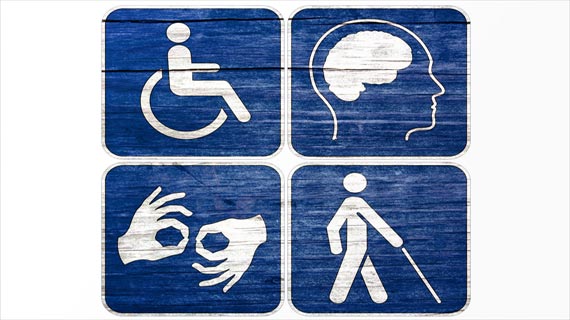
Disabled rural schoolchildren suffer more due to long distances they have to travel to access education, a Zanu PF senator said on Tuesday.
NVENERANDA LANGA SENIOR REPORTER
The issue was raised in Senate by Matabeleland North senator Sithokozile Mathuthu who urged government to make life easier for children living with disabilities by building more schools to make education accessible for them.
Mathuthu was contributing to debate on a motion on availability of social amenities by disabled persons which was introduced in Senate last week by senator representing the disabled, Annah Shiri.
“In rural areas able bodied children travelled long distances to go to schools and clinics and they have to wake up very early in the morning before the sun rises to move in the dark.
“But those children living with disabilities have problems with movement and they cannot catch up with school starting time,” Mathuthu said.
“The government should construct schools near villages which have a special focus on children living with disabilities so that they could live normal lives because the Constitution says disabled people have their rights which have to be protected.”
She said the Basic Education Assistance Module (BEAM) should give priority to disabled children.
- Chamisa under fire over US$120K donation
- Mavhunga puts DeMbare into Chibuku quarterfinals
- Pension funds bet on Cabora Bassa oilfields
- Councils defy govt fire tender directive
Keep Reading
“We noted that some of the committees at schools which vet and select children who benefit from BEAM overlook children living with disabilities.
“Braille should be extended to all the schools and teachers should also be taught how to teach Braille,” she said.
Mathuthu said the government must consider establishing special classes for children living with disabilities at all schools, as well as teaching of sign language.
Chief Lucas Mtshane said apart from suffering problems with mobility, there was social stigma attached to giving birth to a child with disability.
“Firstly, parents go through an emotional crisis characterised by shock, denial and disbelief, followed by a period of emotional disorganisation that includes feelings of anger, guilt, depression, shame, lowered self-esteem, rejection and over-protection of the child.
“It is presumed that parents, especially mothers reach a stage in which they accept their physically challenged children,” Chief Mtshane said.
He said mothers suffered a lot due to giving birth to a child with disabilities and at some instances they were abandoned by their husbands or partners.
“Services for people living with disabilities are usually provided by charities.
“Surely, an able-bodied government should not expect elevators in high rise buildings to be provided by charity alone,” the traditional leader said.










